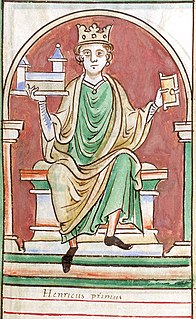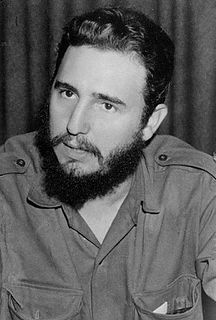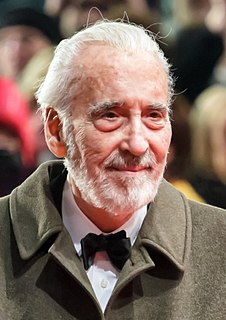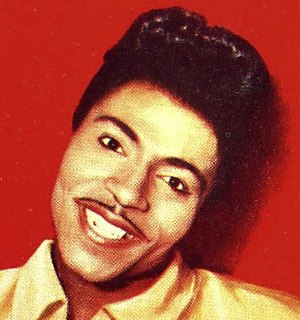Related Research Articles

Ancient Egypt was a civilization of ancient North Africa, concentrated along the lower reaches of the Nile River, situated in the place that is now the country Egypt. Ancient Egyptian civilization followed prehistoric Egypt and coalesced around 3100 BC with the political unification of Upper and Lower Egypt under Menes. The history of ancient Egypt occurred as a series of stable kingdoms, separated by periods of relative instability known as Intermediate Periods: the Old Kingdom of the Early Bronze Age, the Middle Kingdom of the Middle Bronze Age and the New Kingdom of the Late Bronze Age.

Artificial intelligence (AI) is intelligence demonstrated by machines, unlike the natural intelligence displayed by humans and animals, which involves consciousness and emotionality. The distinction between the former and the latter categories is often revealed by the acronym chosen. 'Strong' AI is usually labelled as artificial general intelligence (AGI) while attempts to emulate 'natural' intelligence have been called artificial biological intelligence (ABI). Leading AI textbooks define the field as the study of "intelligent agents": any device that perceives its environment and takes actions that maximize its chance of achieving its goals. Colloquially, the term "artificial intelligence" is often used to describe machines that mimic "cognitive" functions that humans associate with the human mind, such as "learning" and "problem solving".

Caesar Augustus, also known as Octavian, was the first Roman emperor, reigning from 27 BC until his death in AD 14. His status as the founder of the Roman Principate has consolidated a legacy as one of the most effective leaders in human history. The reign of Augustus initiated an era of relative peace known as the Pax Romana. The Roman world was largely free from large-scale conflict for more than two centuries, despite continuous wars of imperial expansion on the Empire's frontiers and the year-long civil war known as the "Year of the Four Emperors" over the imperial succession.

George Harrison was an English musician, singer-songwriter, and music and film producer who achieved international fame as the lead guitarist of the Beatles. Sometimes called "the quiet Beatle", Harrison embraced Indian culture and helped broaden the scope of popular music through his incorporation of Indian instrumentation and Hindu-aligned spirituality in the Beatles' work. Although the majority of the band's songs were written by John Lennon and Paul McCartney, most Beatles albums from 1965 onwards contained at least two Harrison compositions. His songs for the group include "Taxman", "Within You Without You", "While My Guitar Gently Weeps", "Here Comes the Sun" and "Something".

Henry I, also known as Henry Beauclerc, was King of England from 1100 to his death in 1135. He was the fourth son of William the Conqueror and was educated in Latin and the liberal arts. On William's death in 1087, Henry's elder brothers Robert Curthose and William Rufus inherited Normandy and England, respectively, but Henry was left landless. He purchased the County of Cotentin in western Normandy from Robert, but his brothers deposed him in 1091. He gradually rebuilt his power base in the Cotentin and allied himself with William against Robert.

James Marshall "Jimi" Hendrix was an American musician, singer, and songwriter. Although his mainstream career spanned only four years, he is widely regarded as one of the most influential electric guitarists in the history of popular music, and one of the most celebrated musicians of the 20th century. The Rock and Roll Hall of Fame describes him as "arguably the greatest instrumentalist in the history of rock music".

Stanley Kubrick was an American film director, producer, screenwriter, and photographer. He is frequently cited as one of the greatest filmmakers in cinematic history. His films, which are mostly adaptations of novels or short stories, cover a wide range of genres, and are noted for their realism, dark humor, unique cinematography, extensive set designs, and evocative use of music.

The wolf, also known as the gray wolf or grey wolf, is a large canine native to Eurasia and North America. More than thirty subspecies of Canis lupus have been recognized, and gray wolves, as colloquially understood, comprise non-domestic/feral subspecies. The wolf is the largest extant member of the family Canidae, males averaging 40 kg (88 lb) and females 37 kg (82 lb). Wolves measure 105–160 cm (41–63 in) in length and 80–85 cm (31–33 in) at shoulder height. The wolf is also distinguished from other Canis species by its less pointed ears and muzzle, as well as a shorter torso and a longer tail. The wolf is nonetheless related closely enough to smaller Canis species, such as the coyote and the golden jackal, to produce fertile hybrids with them. The banded fur of a wolf is usually mottled white, brown, gray, and black, although subspecies in the arctic region may be nearly all white.

Fidel Alejandro Castro Ruz was a Cuban revolutionary and politician who served as the prime minister of Cuba from 1959 to 1976 and president from 1976 to 2008. Ideologically a Marxist–Leninist and Cuban nationalist, he also served as the first secretary of the Communist Party of Cuba from 1961 until 2011. Under his administration, Cuba became a one-party communist state; industry and business were nationalized, and state socialist reforms were implemented throughout society.

Nikita Sergeyevich Khrushchev led the Soviet Union as the First Secretary of the Communist Party of the Soviet Union from 1953 to 1964 and as chairman of the country's Council of Ministers from 1958 to 1964. During his rule, Khrushchev stunned the communist world with his denunciation of Stalin's crimes and began de-Stalinization. He sponsored the early Soviet space program, and enactment of relatively liberal reforms in domestic policy. After some false starts, and a narrowly avoided nuclear war over Cuba, he conducted successful negotiations with the United States to reduce Cold War tensions. His proclivity toward recklessness led the Kremlin leadership to strip him of power, replacing him with Leonid Brezhnev as First Secretary and Alexei Kosygin as Premier.

Edward II, also called Edward of Caernarfon, was King of England from 1307 until he was deposed in January 1327. The fourth son of Edward I, Edward became the heir apparent to the throne following the death of his elder brother Alphonso. Beginning in 1300, Edward accompanied his father on campaigns to pacify Scotland. In 1306, he was knighted in a grand ceremony at Westminster Abbey. Following his father's death, Edward succeeded to the throne in 1307. He married Isabella, the daughter of the powerful King Philip IV of France, in 1308, as part of a long-running effort to resolve tensions between the English and French crowns.

A ninja or shinobi was a covert agent or mercenary in feudal Japan. The functions of a ninja included espionage, deception, and surprise attacks. Their covert methods of waging irregular warfare were deemed dishonorable and beneath the honor of the samurai. Though shinobi proper, as specially trained spies and mercenaries, appeared in the 15th century during the Sengoku period, antecedents may have existed as early as the 12th century.

Sir Christopher Frank Carandini Lee, was an English actor, singer, and author. With a career spanning nearly seven decades, Lee was well known for portraying villains, gaining recognition for appearing as Count Dracula in a sequence of Hammer Horror films. His other film roles include Francisco Scaramanga in the James Bond film The Man with the Golden Gun (1974), Count Dooku in the Star Wars prequel trilogy (2002–2005), and Saruman in both the Lord of the Rings film trilogy (2001–2003) and the Hobbit film trilogy (2012–2014).

Richard Wayne Penniman, better known as Little Richard, was an American musician, singer, and songwriter. He was an influential figure in popular music and culture for seven decades. Nicknamed "The Innovator, The Originator, and The Architect of Rock and Roll," Richard's most celebrated work dates from the mid-1950s, when his charismatic showmanship and dynamic music, characterized by frenetic piano playing, pounding back beat and raspy shouted vocals, laid the foundation for rock and roll. Richard's innovative emotive vocalizations and uptempo rhythmic music also played a key role in the formation of other popular music genres, including soul and funk. He influenced numerous singers and musicians across musical genres from rock to hip hop; his music helped shape rhythm and blues for generations.

Magdalena Carmen Frida Kahlo y Calderón was a Mexican painter known for her many portraits, self-portraits, and works inspired by the nature and artifacts of Mexico. Inspired by the country's popular culture, she employed a naïve folk art style to explore questions of identity, postcolonialism, gender, class, and race in Mexican society. Her paintings often had strong autobiographical elements and mixed realism with fantasy. In addition to belonging to the post-revolutionary Mexicayotl movement, which sought to define a Mexican identity, Kahlo has been described as a surrealist or magical realist. She is known for painting about her experience of chronic pain.

The 2003 invasion of Iraq was the first stage of the Iraq War. The invasion phase began on 19 March 2003 (air) and 20 March 2003 (ground) and lasted just over one month, including 26 days of major combat operations, in which a combined force of troops from the United States, the United Kingdom, Australia and Poland invaded Iraq. This early stage of the war formally ended on 1 May 2003 when U.S. President George W. Bush declared the "end of major combat operations", after which the Coalition Provisional Authority (CPA) was established as the first of several successive transitional governments leading up to the first Iraqi parliamentary election in January 2005. U.S. military forces later remained in Iraq until the withdrawal in 2011.

Thierry Daniel Henry is a French professional football coach and former player who is an assistant coach for Belgium. He is considered one of the greatest strikers of all time and one of the greatest players in the history of the Premier League. In 2003 and 2004, Henry was the runner-up for the FIFA World Player of the Year, and was runner-up for the Ballon d'Or in the former year. He was named the PFA Players' Player of the Year twice, the FWA Footballer of the Year three times, and was named in the PFA Team of the Year six consecutive times. He was also included in the FIFA FIFPro World XI once and the UEFA Team of the Year five times. He was one of the most commercially marketed footballers during the 2000s. Henry was one of the first two players inducted into the Premier League Hall of Fame in 2021.

James VI and I was King of Scotland as James VI from 24 July 1567 and King of England and Ireland as James I from the union of the Scottish and English crowns on 24 March 1603 until his death in 1625. The kingdoms of Scotland and England were individual sovereign states, with their own parliaments, judiciaries, and laws, though both were ruled by James in personal union.

The 2004 UEFA European Football Championship, commonly referred to as UEFA Euro 2004 or simply Euro 2004, was the 12th edition of the UEFA European Championship, a quadrennial football competition contested by the men's national teams of UEFA member associations. The final tournament was hosted for the first time in Portugal, from 12 June to 4 July 2004. A total of 31 matches were played in ten venues across eight cities – Aveiro, Braga, Coimbra, Guimarães, Faro/Loulé, Leiria, Lisbon, and Porto.

The Iraq War was a protracted armed conflict that began in 2003 with the invasion of Iraq by the United States-led coalition which overthrew the authoritarian government of Saddam Hussein. The conflict continued for much of the next decade as an insurgency emerged to oppose the coalition forces and the post-invasion Iraqi government. An estimated 151,000 to 1,033,000 Iraqis were killed in the first three to five years of conflict. US troops were officially withdrawn in 2011. The U.S. became re-involved in 2014 at the head of a new coalition; the insurgency and many dimensions of the armed conflict continue. The invasion occurred as part of the George W. Bush administration's War on Terror following the September 11 attacks despite no connection of the latter to Iraq.